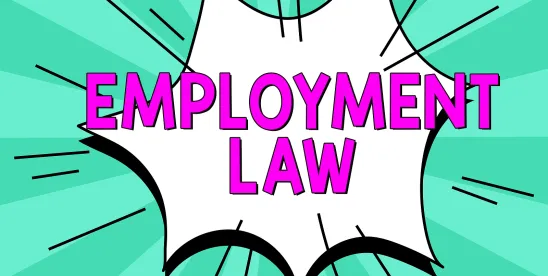On September 30, 2024, Governor Gavin Newsom signed into law SB 399. Starting January 1, employers are officially banned from holding captive audience meetings—mandatory employer-sponsored meetings that discuss religious or political matters—which are a common and accepted defense against union organizing.
SB 399, the California Worker Freedom from Employer Intimidation Act, prohibits employers from taking adverse actions against or threatening such actions against employees who refuse to attend or participate in meetings where an employer would communicate its opinion about religious or political matters which include meetings about unionization. Employers may continue to hold such meetings as long as attendance is voluntary.
The ban will be enforced by the Division of Labor Standards Enforcement and will allow an employee to seek injunctive relief for violations of the bill and provides for a private right of action to recover damages caused by the alleged adverse action. California employers will face a $500 per employee fine if they make workers sit through anti-unionization meetings.
The bill is sponsored by the California Labor Federation, the California State Council of Teamsters, and is supported by numerous worker organizations. The bill is opposed by the California Chamber of Commerce and numerous employer and business organizations.
A ban on such meetings would limit an employer’s ability to run an effective counter to a union organizing campaign. Employers commonly utilize such meetings during union organizing drives to educate employees regarding the realities of unionization and the employer’s opinion on the topic. While the ban does not explicitly prohibit an employer from holding voluntary meetings on such topics, it does arguably limit the rights provided to employers under Section 8(c) of the National Labor Relations Act (“NLRA”), which protects employer free speech. Therefore, we expect that it will be challenged as unconstitutional under the First Amendment and preempted by the NLRA, as challenges made to similar bans in other states.
Other States Have Passed Similar Bans
California is the tenth state to ban captive audience meetings, joining Connecticut, Hawaii, Illinois, Maine, Minnesota, New York, Oregon, Washington, and Vermont. The bans enacted in these states, similar to California’s, prohibit employers from taking adverse action against employees who refuse to attend or participate in employer meetings where employer communicates the opinion of the employer about political and/or union matters.
The Minnesota Chapter of Associated Builders and Contractors and the National Federation of Independent Business challenged the Minnesota ban on employer free speech and preemption grounds, recently surviving the State’s motion to dismiss challenge. Meanwhile, the US Chamber of Commerce along with a coalition of employer groups filed a lawsuit challenging the Connecticut law; the plaintiffs’ motion for summary judgment is set to be heard on November 18.
State lawmakers in Alaska, Massachusetts, New Mexico, and Rhode Island have also introduced captive audience bills in the last year, which remain under consideration.
Captive Audience Bans Are Favored by the Board’s General Counsel
As we reported previously, National Labor Relations Board General Counsel Jennifer Abruzzo urged the Board to rule that such captive audience meetings violate the NLRA. Such a ruling, which has not yet been made, would limit employer free speech rights under 8(c) of the NLRA and reverse 75 years of Board precedent permitting such meetings. Given the Board currently has a Democratic majority and the number of recent decisions favoring unions, the Board is likely to agree with General Counsel Abruzzo’s position and hold that mandatory meetings are unlawful (assuming there is no change in the administration and the Board retains a Democratic majority).
Key Takeaways
Employers should not count on SB 399 being enjoined before January 1. Employers who become involved in union campaigning efforts should be cautious when attempting to organize meetings concerning unionization and should consider taking the following steps to comply with the new captive audience law.
- Consult with local labor counsel for guidance on this evolving area of the law and tailor a compliance strategy for your company that minimizes legal risk under SB 399 and the NLRA if your company decides it wants to communicate about unionization or a union campaign.
- Train your front-line supervisors and managers on the parameters of meetings concerning unionization.
- Consider communicating to employees the purpose of any meetings concerning unionization and emphasize the voluntary nature of them (preferably in writing).
- Consider ways for employees to acknowledge the voluntary nature of any meetings that arguably fall under the “captive audience” definition under SB 399 without running afoul to issues under the NLRA (e.g., surveillance or creating the impression of surveillance).






 />i
/>i
